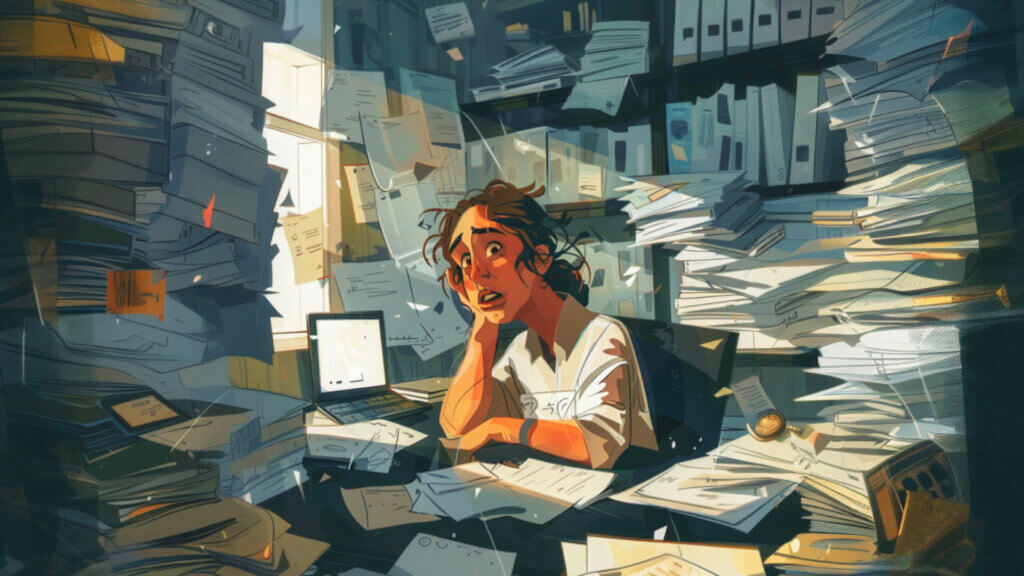
Like me, KiKi’s had a rich and complex professional life. She has switched several times between working as an employee and as an independent consultant in the association field. KiKi told me that some aspects of her behavior working as an independent mirrored the dysfunction of her growing up. Though this was one of several factors leading to the decision, KiKi decided to embrace working as an employee once more for big red M, a company that is a good match for her passions and expertise.
This is the latest step along KiKi‘s journey. I admire the honesty, energy, commitment, and smarts that she brings to her life and work. I want to thank KiKi for her frank sharing that inspired the core of this post. Namely: we need to look not only at our family relationships but also our relationships with our career.
My relationship with my career
Each person’s past experiences and situations are unique. I, like KiKi, work to disentangle myself from what I was taught to believe when I was young. I also notice and review how I work and my relationships with my clients. Doing this reduces the effects of learned dysfunction on my day-to-day life.
For example, when I first started consulting I was scared of disappointing my clients. I (falsely) believed that if I didn’t do a perfect job I would fail in some way. Since I’m not perfect, this led me not to feel good about myself. So, in those early days, I put up with what I now know were unreasonable requests from clients. It took some years before I felt confident in saying no to some of these requests. Eventually, that progressed to breaking up with clients who ignored or did not want to accept my boundaries for a working relationship.
At times, KiKi and I have both chosen to work independently rather than being employed by an organization. This is a big, complicated decision.
I sometimes envy folks embedded inside organizations. They usually have access to resources that I could never have as an independent. As a consultant, I have less authority to effect change in an organization than anyone who works there. And, as an independent, I’ve sometimes felt nervous about the lack of a regular paycheck.
Then I remember that, as an independent, I have the freedom to choose:
- whom I work with;
- the kind of work I do and the way I do that work;
- the power to determine my schedule; and
- my ability to take breaks and time off when it’s best for me, not my employer.
Your relationship with your career
An unhealthy relationship with your career is different from an unhealthy relationship with your work. The former means your dysfunctional behaviors may affect:
- the kinds of work you choose;
- the quality of your work relationships at every job; and
- your career path.
You have almost certainly experienced unpleasant situations at work. Some of them are caused by circumstances completely out of your control. But in some of them, you have played a part. Having an unhealthy relationship with your career means that you repeat dysfunctional patterns as you move or make decisions about moving from one work opportunity to another.
An analogy would be someone who is a “bad picker” of relationship partners. Over and over again this person chooses to have relationships with people. with whom they are not compatible for one or more reasons that ultimately sabotage each relationship. The same dysfunctional patterns repeat again and again inside each relationship because bad pickers are drawn to relationships that fulfill what their dysfunctional aspects need rather than what their authentic self requires and deserves.
Similarly, you may be drawn to work situations that feed your dysfunctional aspects, leading to repeated eventual dissatisfaction with each new work situation.
There’s no single “right” relationship
Exploring your relationship with your career can have a profound long-term effect on your life.
For example, noticing and responding to our relationship with our work and our careers influence how Kiki and I choose to work as an independent or employee. There is no single right choice for everyone. Although I haven’t received a paycheck for over 30 years, from 1983 to 1993 I was a part-time college professor drawing a salary while simultaneously pursuing independent consulting work. My friend, veteran event producer and educator Brandt Krueger, has a similar story to tell. Employed for twenty years, he eventually struck out as an independent for eight years, only recently returning to employment as a senior event producer at a large company.
What is best for KiKi, Brandt, and me is different. And that’s OK, and as it should be.
What’s important is to keep looking at our experience with everyone who is part of our world. That includes our family, friends, colleagues, working environment, and our career.
We need to keep noticing what’s happening, what’s working, and what isn’t in all these components of our lives. This crucial work allows us to reduce the distance between who we are and how we show up in the world. In the process, you’ll be working to minimize the unhealthy aspects of your relationship with your career.
